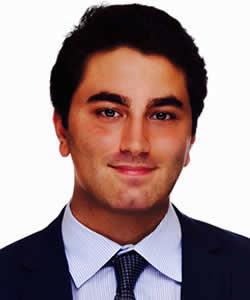I recently had the opportunity and privilege to attend the International Center for Religion and Diplomacy’s (ICRD) annual Faith-In-Action dinner. The organization honored the service of Imam Mohamed Magid. As I finish up an incredible and thought-provoking semester as a Doyle Undergraduate Fellow, it was appropriate to reflect, just as Imam Magid reflected, on how to put faith into action.
Entering the Doyle Undergraduate Fellows program, my paradigm regarding the intersection of religion and world affairs was one of skepticism and fragility; I thought there was a disparity in the way faith “talked” and “walked.” This difference in rhetoric and action has had potential to both mobilize and marginalize. In essence, the disparity has led to an augmentation of an “us” versus “them” dichotomy, further disrupting hopes of peace and cooperation.
This doubt has grown rapidly in recent years. From global terrorism, demagogical outcries against religious minorities in the United States, to a U.S. population becoming less religious, in stark contrast with the rest of the world. Religious skepticism and denouncement are becoming increasingly characteristic of our society.
Yet, volunteering at this dinner, interacting with the guests, and hearing of their great work gave me hope. Organizations like the Berkley Center for Religion, Peace, and World Affairs and ICRD are built on fundamental tenets of engagement and understanding. They do not shy away from problems, but rather confront them. Despite political chaos, violence, and social discord, these organizations have incorporated both rhetoric and work into tangible progress. Understanding and engagement is proliferated through a multitude of voices and faiths, spanning from our own university, with a reach across the world. These organizations work with students, teachers, and leaders within the United States, but also create projects and initiatives around the world, working to empower individuals to put their faith into action. This process has led to a development of capabilities so that individuals may, in turn, empower and teach their own children, families, and communities.
Reflecting on my own work at the Berkley Center, which included attending a Buddhist meditation service and conducting interviews with varied interfaith activists and educators from around the world, has afforded me such a distinctly hopeful perspective. Leaders such as Imam Magid and organizations like the Berkley Center and ICRD are trying so hard to cultivate this new paradigm of thinking, that faith in action creates understanding, bridging the gap of misperception and ignorance to unite and inspire. I am honored to have played a role in this important work, and look to continue such service by combating misinformation through education and initiatives that empower individuals – using religion as the catalyst to foster cooperation, eliminate stigma, and promote a healthier and more progressive society.

